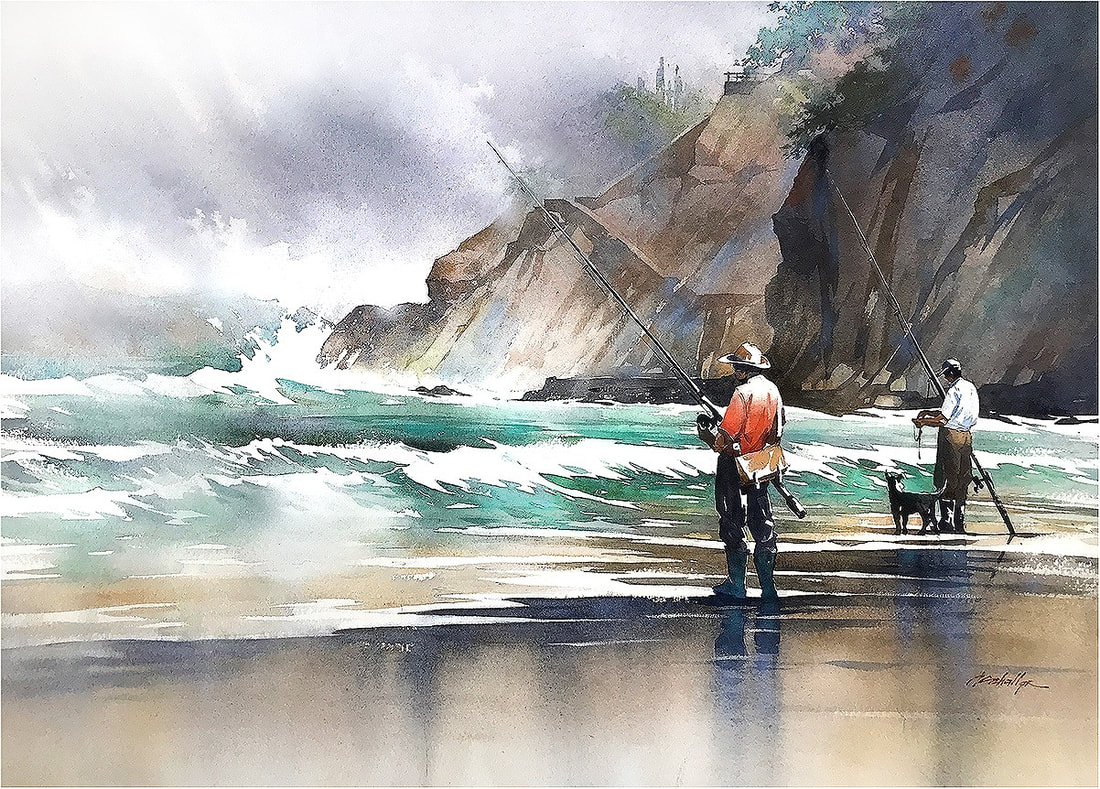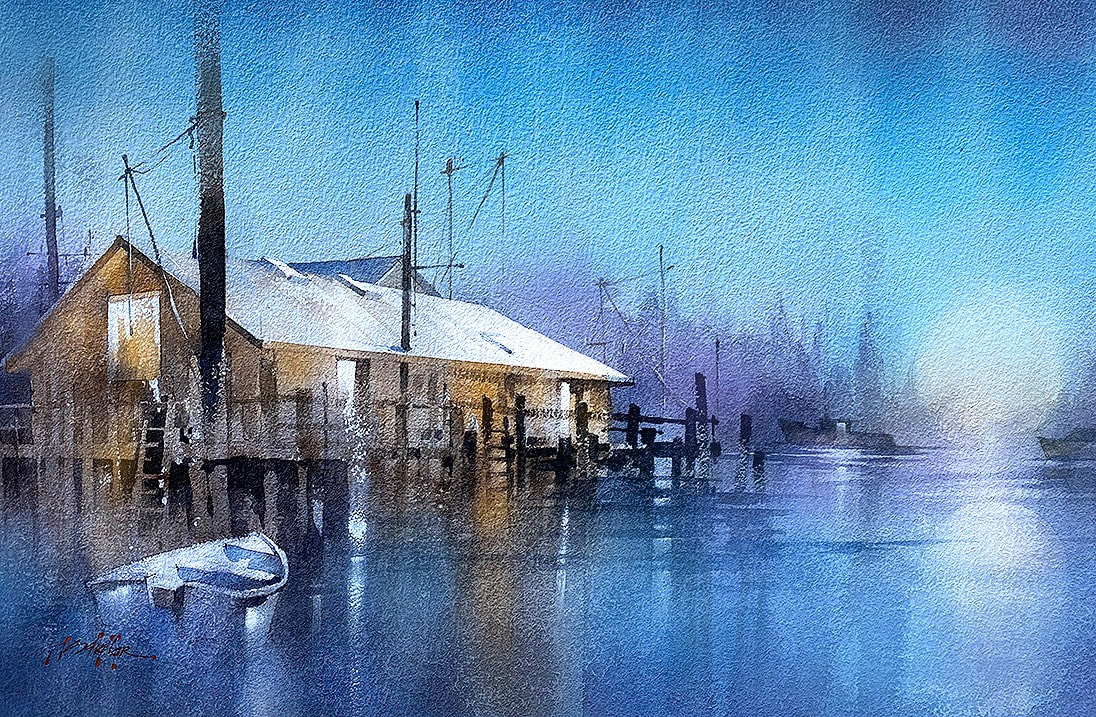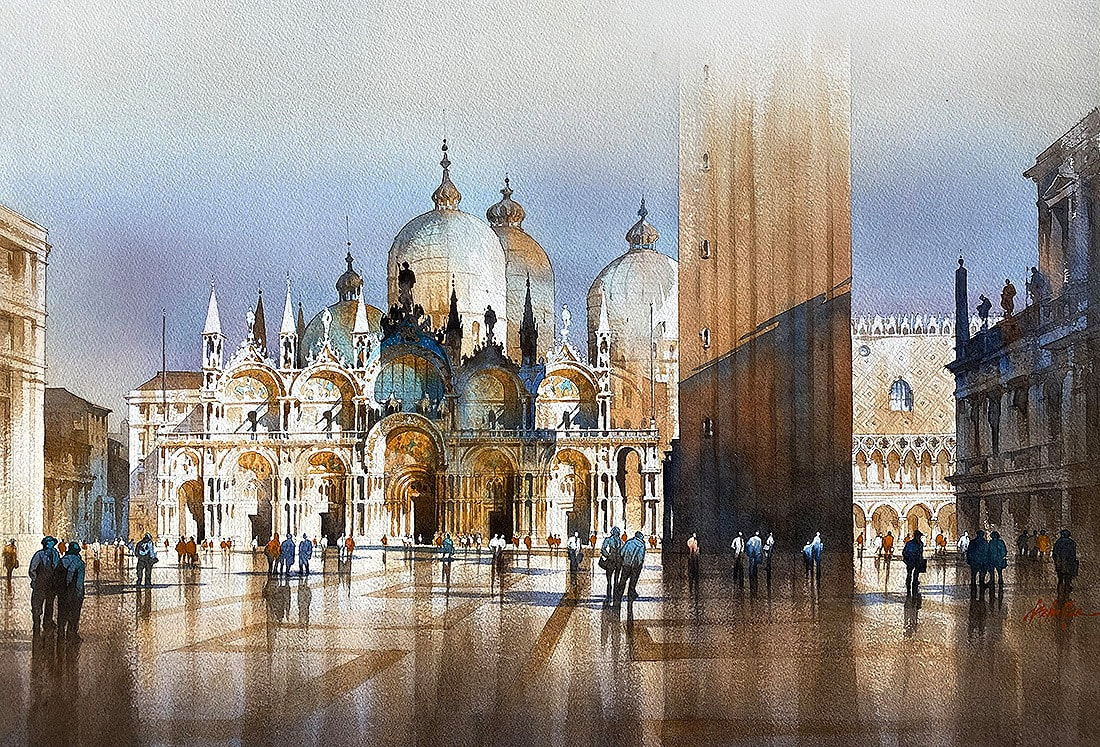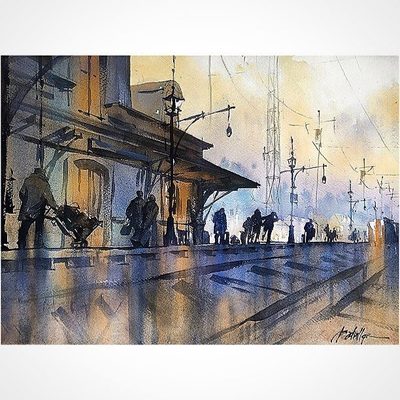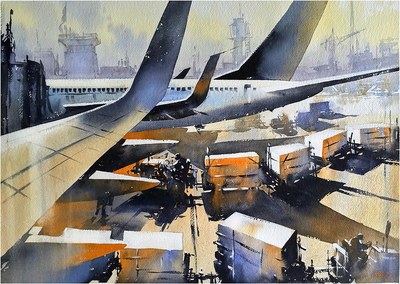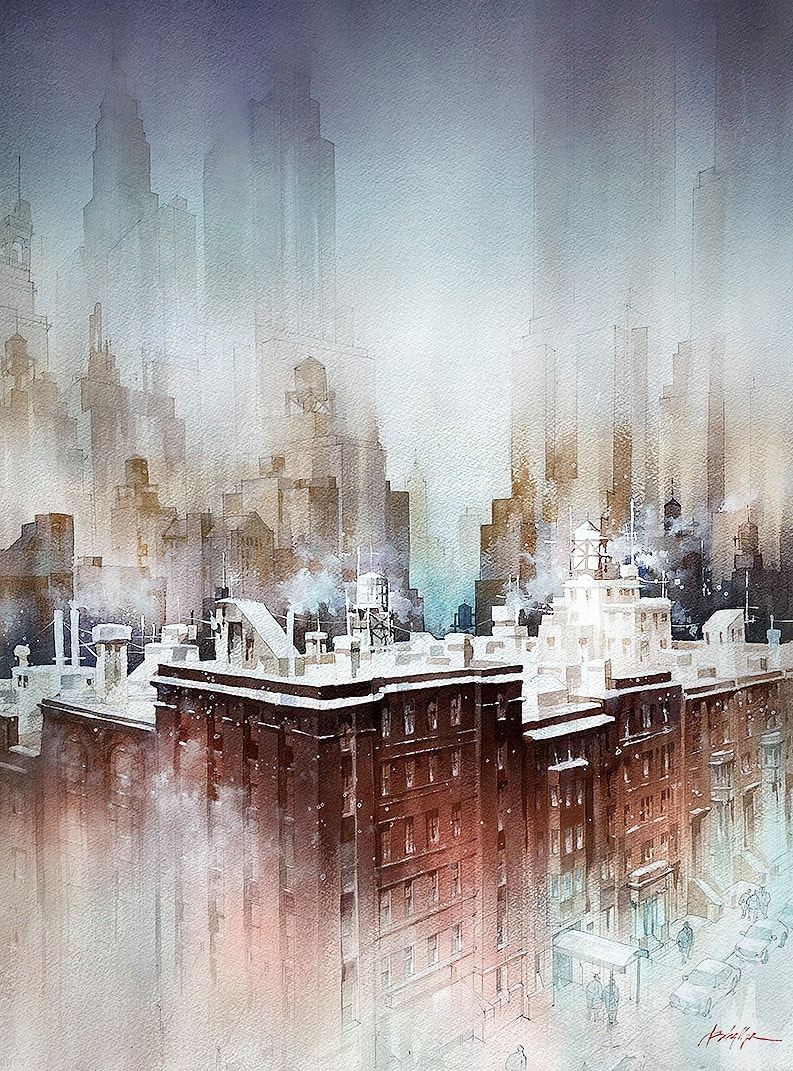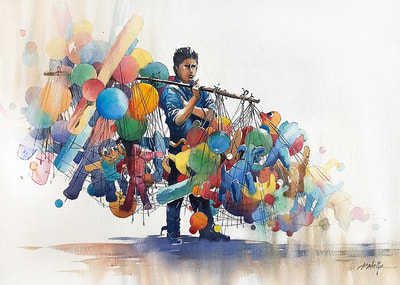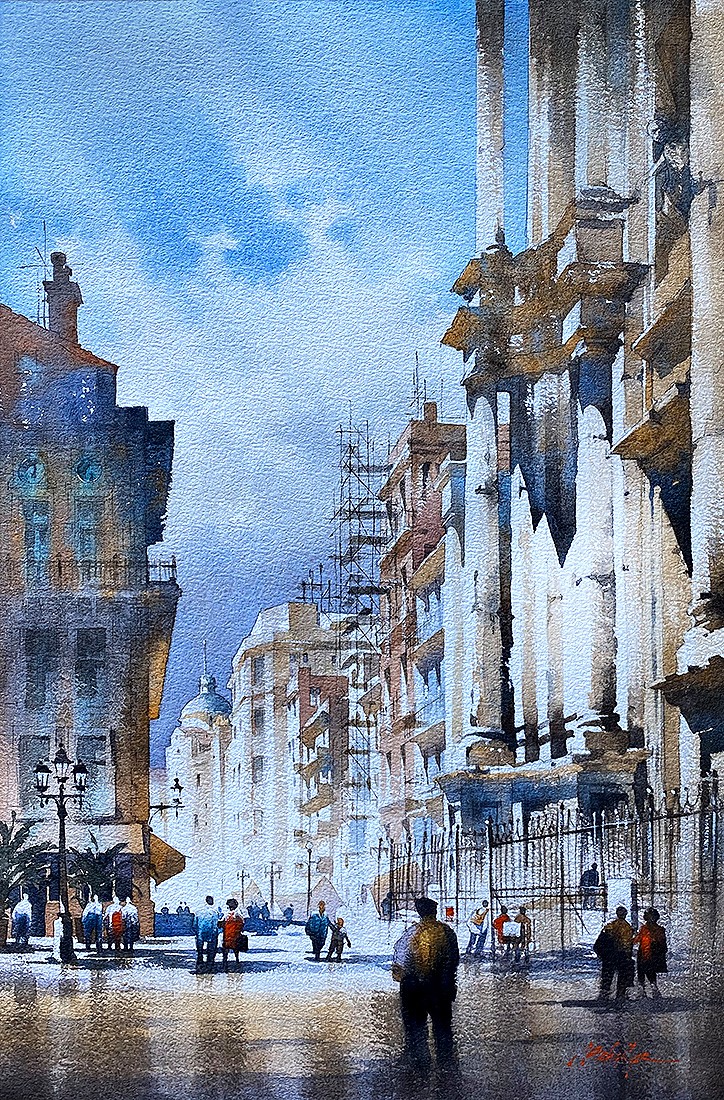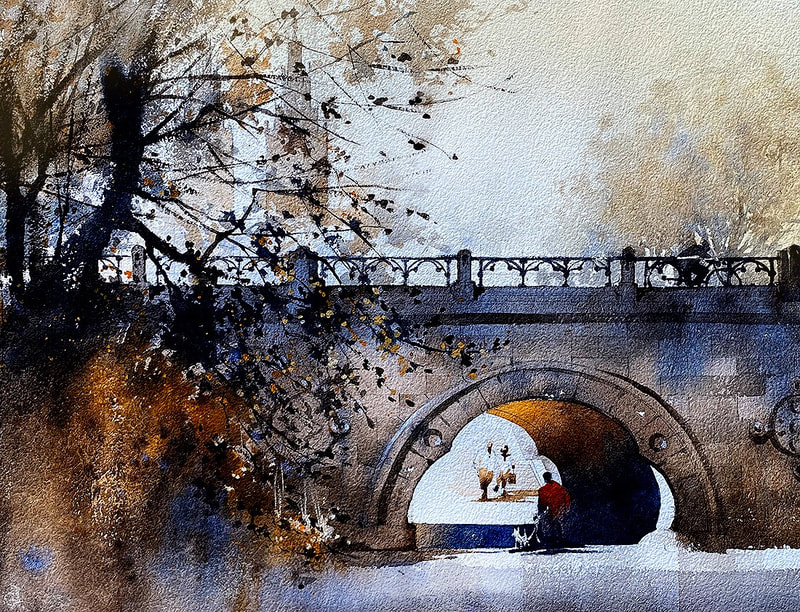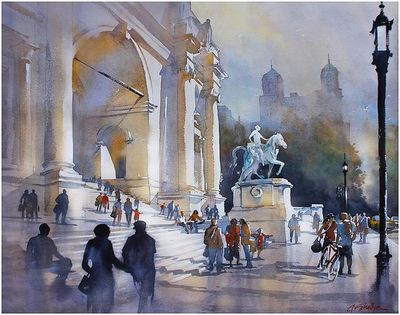THOMAS W SCHALLER
ONLINE workshop: The Power of Design
The image is for illustration only.
|
CURRENT THOMAS W SCHALLER WORKSHOPS ARE SOLD OUT.
PLEASE FILL OUT WAITING LIST FORM TO BE NOTIFIED ABOUT ANY OPENED SPOTS OR/AND FUTURE WORKSHOPS. |
|
Thomas W Schaller (AWS, NWS, TWSA ) is an award-winning artist and architect based in Los Angeles.
As a renowned architectural artist, he received a Graham Foundation Grant and was a two-time recipient of the Hugh Ferris Memorial Prize. He has authored three books: the best-selling, and AIA award winner, Architecture in Watercolor, The Art of Architectural Drawing and Thomas W. Schaller, Architecture of Light : Watercolor Paintings from a Master.
He is in demand worldwide as a speaker, exhibitor, author, instructor, and juror.
His work is collected world-wide and is part of a number of permanent collections including The Johhan Museum: Shanghai: The Watermark Museum; Fabriano: The Tchoban Foundation; Berlin: The Pacific Arts Foundation; Newport Beach, The Musum of Watercolor, Mexico City. His artwork has been featured in prestigious International Watercolor Masters exhibitions in over twenty countries.
In 2017, he was a finalist for the Lynx Prize for Contemporary Art; Trieste. His paintings and writing have been featured in a great many books, magazines, and arts publications including The Artist Magazine, Watercolor Artist Magazine, Southwest Art Magazine, The Art of Watercolour, Practique des Arts, Los Angeles Magazine, International Artist Magazine, and a series of the books, Splash: the Best of Watercolor by North Light Books from 2011 - 2018.
A Signature Member of many arts organizations including the American Watercolor Society, Tom was recently appointed to the Advisory Board of American Watercolor Weekly and elected Artist Member of the California Art Club and the Salmagundi Art Club, NYC. He is president emeritus of the American Society of Architectural Illustrators and a founding member of the group; North American Watercolor Artists.
As a renowned architectural artist, he received a Graham Foundation Grant and was a two-time recipient of the Hugh Ferris Memorial Prize. He has authored three books: the best-selling, and AIA award winner, Architecture in Watercolor, The Art of Architectural Drawing and Thomas W. Schaller, Architecture of Light : Watercolor Paintings from a Master.
He is in demand worldwide as a speaker, exhibitor, author, instructor, and juror.
His work is collected world-wide and is part of a number of permanent collections including The Johhan Museum: Shanghai: The Watermark Museum; Fabriano: The Tchoban Foundation; Berlin: The Pacific Arts Foundation; Newport Beach, The Musum of Watercolor, Mexico City. His artwork has been featured in prestigious International Watercolor Masters exhibitions in over twenty countries.
In 2017, he was a finalist for the Lynx Prize for Contemporary Art; Trieste. His paintings and writing have been featured in a great many books, magazines, and arts publications including The Artist Magazine, Watercolor Artist Magazine, Southwest Art Magazine, The Art of Watercolour, Practique des Arts, Los Angeles Magazine, International Artist Magazine, and a series of the books, Splash: the Best of Watercolor by North Light Books from 2011 - 2018.
A Signature Member of many arts organizations including the American Watercolor Society, Tom was recently appointed to the Advisory Board of American Watercolor Weekly and elected Artist Member of the California Art Club and the Salmagundi Art Club, NYC. He is president emeritus of the American Society of Architectural Illustrators and a founding member of the group; North American Watercolor Artists.
